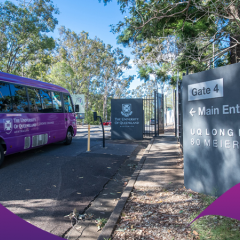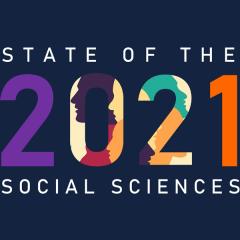Are hard work and individual effort enough to help a person break free from a life of disadvantage, or are there systemic inequalities that prevent some people from becoming the masters of their own destiny?
ISSR's Director, Professor Mark Western, and the Life Course Centre's Director, Professor Janeen Baxter, discussed these questions with a public audience at The University of Queensland’s Global Leadership Series public lecture on Wednesday 16 November 2016, where they provided insights into tried and tested interventions that have been making inroads to even out the playing field.
“People don’t start from the same place, even before birth.”
Professors Western and Baxter challenged the commonly held acceptance of meritocracy in Australia – the idea that everyone can achieve if they work hard enough and the system treats everyone the same.
“Our research tells us that the circumstances we are born into strongly shape our destinies. People don’t start from the same place, even before birth," Professor Baxter said.
“The institutions that matter for our success like family, schools, workplaces and universities too often reward performance that partly reflects our earlier advantages and often these same institutions don’t really compensate for the early disadvantages and setbacks."
Professor Western further explained that “the advantages of ‘good luck’ [by being born into circumstances of means] can compound over a person’s life, while the disadvantages of ‘bad luck’ can also compound, to make people increasingly vulnerable and cause them to fall behind.”
They highlighted the need for investing in future generations through holistic approaches to support disadvantaged parents and students early in the life course, thereby enhancing their ability to effectively participate in school, and further education and employment after school.
Listen to the full recording of this public lecture.



